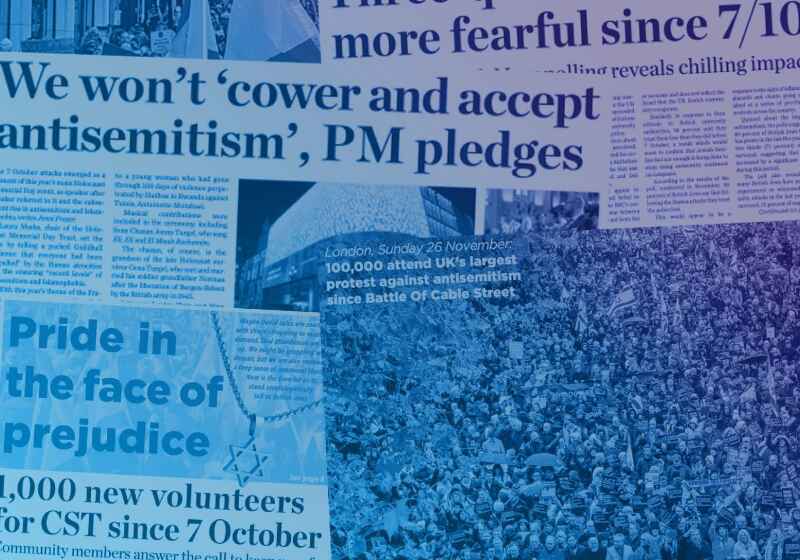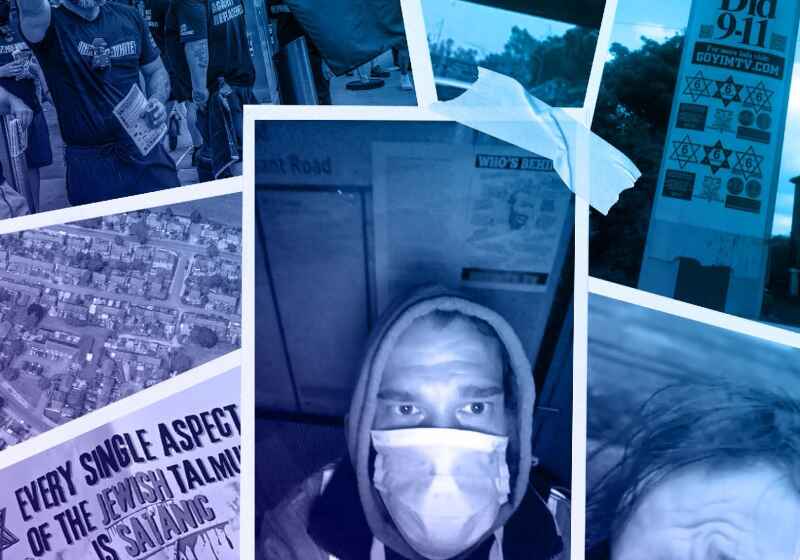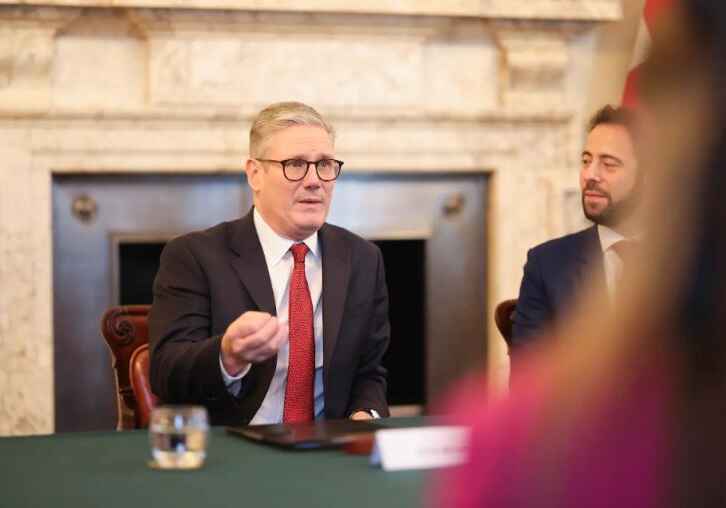CST Blog
Political Soldiers and the New Man - part three
28 April 2010
Parts one and two of this series of blogs can be read here and here.
By the end of the 1980s the increasingly strange direction of the NF's leadership was having a damaging impact on the party's membership, which had dwindled from a few thousand in the early 1980s to just a few hundred. The NF was now following a mish-mash of political ideas and influences which was far removed from the traditions of the British far right. Some branches refused to take copies of National Front News if they included too much content about working with black separatists. The edition which featured Osiris Akkebala on the front cover included an editorial which rejected Nazism and Strasserism in vehement terms, arguing instead for the decentralising of democracy under Distributism.
Despite the collapse in membership and repeated purges, the Political Soldiers ploughed on as true believers. In July 1989 the pro-Khomeini newspaper Crescent International printed a letter from David Kerr, signed on behalf of Ulster National Front, "to convey to you our deepest sympathy on the death of Iran's great spiritual and revolutionary leader - Imam Khomeini...Imam Khomeini has stood as a beacon of truth and justice for all the oppressed peoples of the world. We salute his memory on behalf of all the freedom loving people of Ulster."
Later that year Derek Holland and Nick Griffin left the NF and announced the formation of a new group, the International Third Position (ITP). Behind them they left a mere husk of what had been, a decade earlier, the largest movement in the history of the British far right. Harrington and Williamson renamed the remaining part of the NF as the Third Way, but it was the ITP which continued the Political Soldier ethos. In November 1990, in the period between Saddam Hussein's invasion of Kuwait and the ejection of his forces by an American-led coalition, Derek Holland and Colin Todd (from a local Isleworth sub-group of the ITP, called 'Liberation') visited Iraq as guests of Saddam's government. After an eight-day tour, during which they met the Speaker of the Parliament and various government ministers, Todd returned home convinced that Kuwait belonged to Iraq and lauding the "religious freedom" of minorities under Saddam's rule. All news stories to the contrary, he told his local paper in West London, were "black propaganda written by a bunch of Zionists incorporating vicious lies." Todd refused to say whether the Iraqi government had paid for their trip.
In 1990 Griffin and Holland left the UK for a farmhouse in northern France, to hone their strategy for a devolved network of local activist groups, freed from the centralised control that had been typical of the NF. To explain their reasons for leaving the NF and their strategy for the ITP, the pair produced a two and a half hour video, most of which involves one or the other of them sat in what looks like the dimly-lit bedroom of a teenage fascist, talking into a video camera. In this brief clip, Griffin explains the importance of spiritual struggle and values to their work, names Gaddafi as a Third Positionist thinker and describes himself as, in religious terms, an "eco-pagan":
As the decade wore on, the ITP and other Third Positionist groups became an increasingly irrelevant ideological oddity on the British far right, especially as the BNP and Combat 18 rose in size and significance. Still, they always found room for anti-Israel campaigning, as this "Boycott Israeli Goods" sticker from the ITP shows:

In 1996, The Crusader, published by the English Nationalist Movement (a smaller Third Positionist group which had split from the ITP), featured an obituary for the Hamas bomb-maker Yehiya Ayyash, who had been assassinated by the Israeli army. Ayyash, it claimed, was "an important symbol of Palestinian defiance and deserves to be remembered for the sacrifice he made on behalf of his Race and Nation". Alongside it stood an advert for the pro-Hamas monthly newspaper Palestine Times, and a lengthy article featuring more familiar allegations about "The power of World Jewry", "Khazar Jews", "the invasion of America by the Zionist conspirators" and how "Jewish power" was behind the French and Russian revolutions. It may be a surprise to more recent observers of extremist politics to find that at the end of the 20th century, it was parts of the British far right, not the far left, that promoted Hamas and Iran as fellow resistors against Zionism.
Nick Griffin has changed his stated views considerably since his time in the NF or the ITP - I doubt he would describe himself as a Political Soldier or an eco-pagan today - and the BNP does not bear much resemblance to either group under his leadership. But this story of one of the odder turns of the British far right shows that Edith Crowther is not alone in seeing radical Islamists as comparable to the BNP; and if she is ever called to account for her views, she can hope to find some understanding, if not agreement, from her party leader.
On a more serious note, this story sheds some light on the nature, and limits, of extremist politics. Anyone who is familiar with the writings of Sayyid Qutb on the decadence of Western civilisation, or the more extreme parts of the anti-Zionist left, will have noticed many similarities in the Third Positionist outlook. Their adoption of the Falangist slogan "Long Live Death" is unavoidably reminiscent of the jihadist mantra, "You love life and we love death". It is something of a cliche that the further you go to one extreme or another the more they come to resemble each other, but despite the similar rhetoric this is a bit too simplistic. The more the NF and the Political Soldiers moved onto political territory normally associated with the far left or Islamist revolutionaries, the more of their traditional support they lost until they eventually disappeared into irrelevance. At the same time, they discovered that adopting an overt anti-Zionist message was not enough to persuade pro-Palestinian activists to work with them.
Just because people say similar things, it does not mean that they have reached that way of thinking via the same route, or that they are heading for the same destination. Nor does it mean that they will actively cooperate, although far left and Islamist activists have found much to cooperate on in recent years. What can be said is that there are points at which the ideas and language of political extremes intersect, and that discourse about Jews and Zionism is one of the busier intersections.
Read More
CST meeting with Prime Minister Keir Starmer
2 December 2024

Antisemitic Discourse in Britain 2023
28 October 2024

Pathway to Terror
21 October 2024
